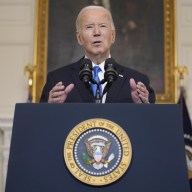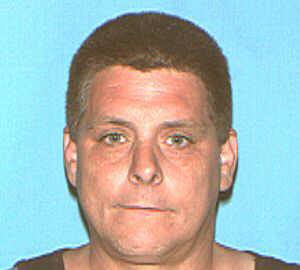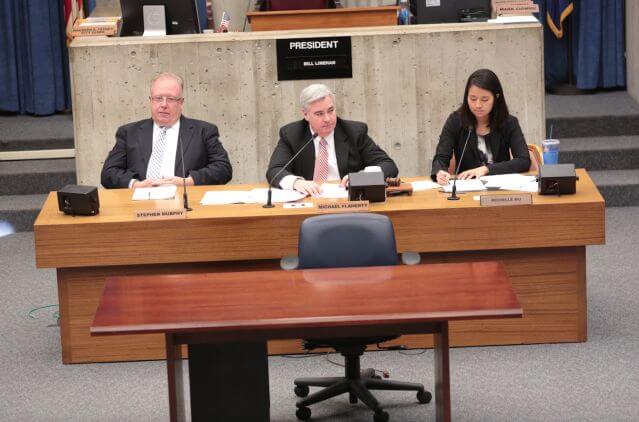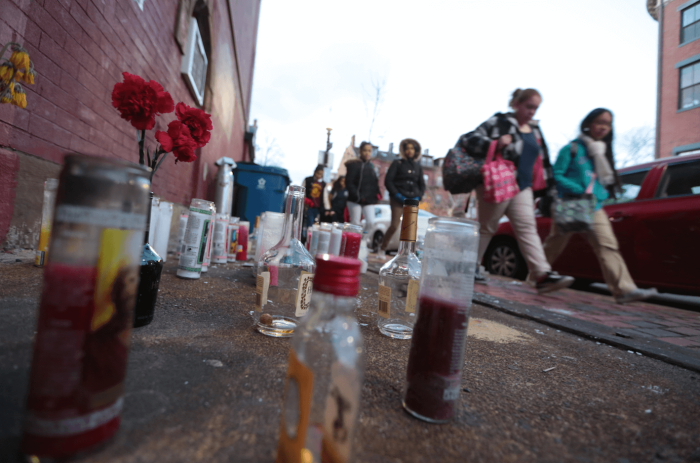Officials are eyeing new lesson plans for Boston children on what to do if they come across used needles – the latest efforts to address a dangerous byproduct of the state’s ongoing opioid crisis. The City Council’s Committee on Education is scheduled to hold a hearing on adding needle safety to the Boston Public Schools curriculum at its Monday meeting. As the number of opiate addicts in the region has swollen, thousands of used sharps have found their way onto Boston’s sidewalks and into public spaces – many of them parks full of children. The issue came to the fore in July after 7-year-old Cadence Epstein pricked her finger on a syringe in Hyde Park’s Iacono Playground. She was being reportedly being treated for hepatitis and HIV as a precautionary measure. RELATED: Lawrence man busted with $2 million of heroin and fentanyl “For me the question had to be asked: Why would a young girl, a smart girl from a great family, why would she pick up a needle to begin with?” said Councilor Tim McCarthy, who proposed the idea this month. “It wasn’t rocket science. She didn’t know what it was.” New age-appropriate lessons in schools could be geared at students as young as kindergarten- or preschool-age, McCarthy said, and a public awareness campaign might involve libraries and community centers, in addition to schools. He said lessons could also focus on educating kids about other drug paraphernalia, and biohazards like used condoms, they might come across by accident. Health officials have struggled to keep pace with the number of people in the region addicted to opiates: a category of morphine-like substances that includes heroin and prescription painkillers. Opiate use and overdose deaths in the state Massachusetts have spiked, particularly since 2013, a recent state analysis found. And for every addict using intravenous drugs, there are needles that can end up posing a safety risk to curious youngsters. RELATED: Massachusetts officials wrestle with growing heroin crisis “It’s terrifying to think of a young child who would have no reason to know what [a syringe] is,” O’Malley told Metro. The need for in-school training, he said, “is a sad reality but it’s a solid idea that I support.” There are options in Boston for drug-users looking to safely discard used needles. The city lists eight syringe disposal sites on its website. Addicts can also enroll in the city-run AHOPE (Addicts Health Opportunity Prevention Education) needle exchange program, which swaps collects used needles and gives drug-users access to clean ones in an effort to curb the spread of disease. The exchange is open weekdays at 774 Albany St. and services are also available via mobile van. Contact them at617-534-3963. Earlier this year, Mayor Marty Walsh dispatched a Mobile Sharps Collection Team to collect needles with tongs and stuff them in plastic biohazard bins. Since May, the two-member crew had reportedly removed more than 4,000 discarded syringes from parks and gutters and bushes. There have been talks of adding a third member to the crew, and installing new needle disposal kiosks, WBUR reported Wednesday. “Mayor Walsh firmly believes public spaces should be safe for the people of Boston and visitors, and loose needles are a risk to anyone who is exposed,” spokeswoman Juli Hanscom told Metro Thursday. RELATED: Gov. Baker rolls out $27 million fight against drugs City-dwellers who find stray needles can report them to the mayor’s 24-hour hotline (617-635-4500) or file a report using the Citizens Connect mobile app.
In an interview, City Councilor Tito Jackson called the Hyde Park needle incident “a new low for the City of Boston,” and said the root of the issue is there are too few resources for addicts in the state – there were roughly 2,500 beds for residential addiction treatment in Massachusetts this year, according to reports.. Opiate overdoses killed more than 1,000 in 2014, up by a third over the previous year, according to an analysis from a governor-commissioned working group. In that same period, detox facilities in Boston were working at 97 percent capacity, and the wait time for placement in residential treatment averaged 23 days, according to another recent study. “Once we realize that the Department of Correction should not be the largest drug treatment center in the State of Massachusetts,” Jackson said, “we will continue to chase our tail and have to deal with the symptoms, rather than the underlying problem.” Find a needle? Contact the Mayor’s hotline at 617-635-4500 with specific details on where you found it.
Where to safely discard needles:
(Note: do not throw them in the trash)
AIDS Action Committee – 75 Amory Street, Jamaica Plain
Boston Public Health Commission – 35 Northampton Street
Neponset Health Center – 398 Neponset Avenue, Dorchester
Walgreens Community Pharmacy – 21-23 Stanhope Street, Boston
Boston Health Care for the Homeless – 780 Albany Street, Boston
Span, Inc. – 105 Chauncy Street, 6th floor, Boston
MA Alliance of Portuguese Speakers – 1 Stoughton Street, Dorchester
Women of Color AIDS Council – 409 Blue Hill Avenue, Dorchester
Lessons tied to heroin crisis eyed for Boston Public Schools
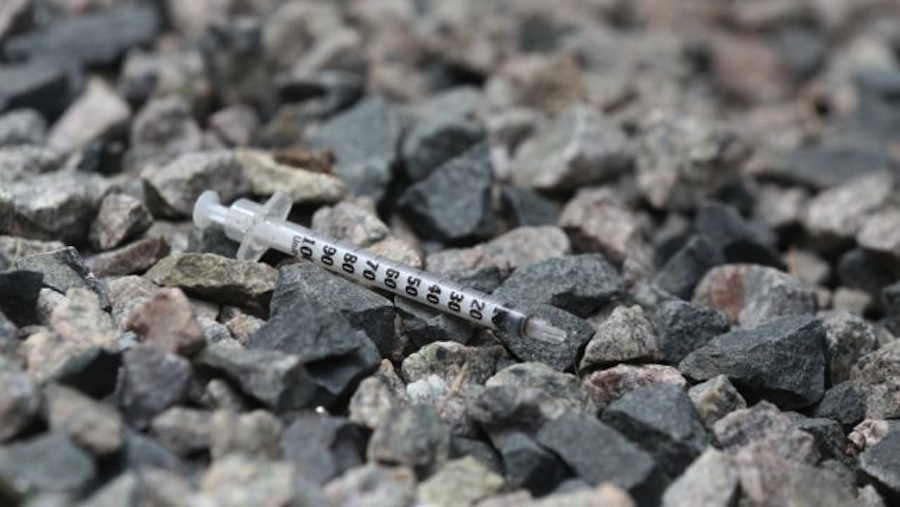
NICOLAUS CZARNECKI/METRO









